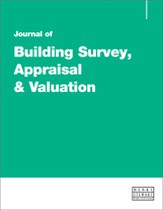New opportunities and the valuation of energy assets
Abstract
When the Coalition Government came to power in 2010, it was very keen to support the emerging renewable energy market to reduce CO2 emissions to comply with world and European directives. To boost the market, large financial incentives were introduced. These have virtually disappeared, but there are now a large number of energy assets that require specialist valuation work. A new ‘smart’ grid system is being introduced, replacing the old coal and nuclear power stations with a rapidly emerging market in energy storage, using battery and short term operating reserve (STOR) technology. This can supply power into the grid in a fraction of a second and ideally complement the intermittent power from renewable projects.
The full article is available to subscribers to the journal.
Author's Biography
Mark Newton started the Fisher German energy sector in 2001. Fisher German was one of the first firms of chartered surveyors to specialise in renewable and sustainable energy. He is a leading expert on wind, solar, AD and all forms of renewable and sustainable energy, battery storage and STOR Energy sites. He has been selected by most of the major banks to help formulate their renewable lending policy and train their managers. He has helped write the CLA Advisory Booklet on wind farms, spoken on BBC Radio 4 and appeared on BBC1 Countryfile. He speaks regularly at renewable energy conferences, including Energy Now and NextGen, and has written many renewable farming press articles. He has been involved in around 300 wind farm projects, hundreds of single wind turbine projects and more than 90 solar park projects, as well as large numbers of commercial scale domestic and industrial solar PV projects. He and his team have been involved with over 50 anaerobic digestion (AD) plants, numerous renewable heat incentive (RHI) projects and hydro schemes. He is also involved in valuations of renewable projects for banks and landowners. He was selected by the RICS in 2014–17 to deliver the lectures on ‘Valuation of Renewable Assets’ across the UK. He spoke to the Bristol Law Society annual conference in 2015 on ‘Overage – valuing renewable projects’. He has lectured across the country on energy at MBL seminars for the legal profession. He also specialises in expert witness work for solicitors in renewables disputes and he has been involved in cases in the High Court and the Lands Tribunal.
Citation
Newton, Mark (2017, December 1). New opportunities and the valuation of energy assets. In the Journal of Building Survey, Appraisal & Valuation, Volume 6, Issue 3. https://doi.org/10.69554/DLVO1077.Publications LLP
